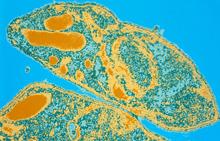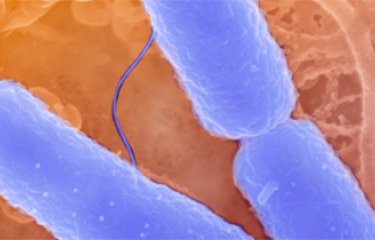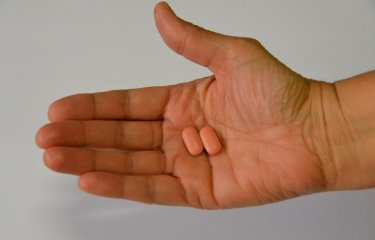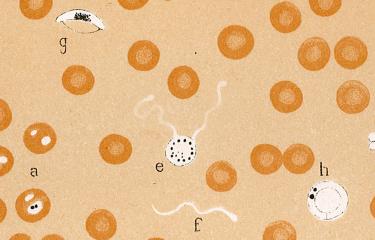A vast immunoepidemiological study, published in PLoS Medicine, has just confirmed the importance of a candidate vaccine against malaria, named MSP3, under development at the Institut Pasteur. The study shows that the antibodies directed against this molecule, produced by the exposed subjects, are closely associated with protection against the disease, including among young children—unlike antibodies directed against other candidate vaccines. These results, which confirm those of the first clinical trials, provide the hope of being able to induce a good level of protection from malaria, starting at a young age.
Press release
Paris, november 13, 2007

The work performed by the Biomedical Parasitology Laboratory at the Institut Pasteur (directed by Pierre Druilhe), in collaboration with the Institut Pasteur of Dakar and the IRD in particular, raises the hope of being able to induce effective protection thanks to a particular antigen of the Plasmodium falciparum parasite, named MSP3.
The antibody responses to six candidate vaccine antigens, including MSP3, have been compared as part of a particularly rigorous study conducted in regions endemic for malaria: over 14 years, the 247 inhabitants of the village of Dielmo, Senegal, have been the subject of a cohort study including daily medical follow-up and the drawing of serum samples. This data has allowed researchers to evaluate the protective power of the antibodies studied, based on approximately thirty immunological parameters. Their conclusion is that only the anti-MSP3 antibodies correlate with protection, that this correlation is very high and that it strongly influences the clinical evolution over a long period (6 years). This correlation was observed not only among adults, but also among children.
mosquito Anophele Druilhe emphasises that "these results match those from a series of experimental trials, conducted in vitro and in vivo, and match the results from the first clinical trial (1), which showed a powerful antiparasitic effect of the anti-MSP3 antibodies”.
The MSP3 antigen, which is well "preserved", or in other words does not vary from one strain of parasite to another, was already the subject of a conclusive phase I trial among healthy volunteers (1). Two phase Ib trials in endemic regions are currently under way in Burkina Faso and Tanzania. It will be necessary to wait for the phase II trial, which should also take place in Tanzania, to verify the vaccine efficacy of MSP3, a candidate that has, at least conceptually, greatly proven its importance.
Sources:
(1) Read our press release dated 8 November 2005:
- “Long term clinical protection from falciparum malaria is strongly associated with IgG3 antibodies to Merozoite surface protein 3”: PLoS Medicine, 2007.
Christian Roussilhon (1), Claude Oeuvray (1), Christine Müller-Graf (2), Adama Tall (3), Christophe Rogier (3), Jean-François Trape (4), Michael Theisen (5), Aissatou Balde (6), Jean-Louis Pérignon (1), Pierre Druilhe (1).
1. Biomedical Parasitology Laboratory, Institut Pasteur, Paris, France.
2. Evolutionary Ecology of Parasites Laboratory, Université Pierre et Marie Curie, Paris, France.
3. Epidemiology Unit, Institut Pasteur of Dakar, Senegal.
4. UR 077, Malaria research in tropical Africa, Institut de Recherche pour le Développement (IRD), Dakar, Senegal.
5. Statenseruminstitut, Copenhagen, Denmark.
6. Parasite Immunology Unit, Institut Pasteur of Dakar, Senegal
Contact persons:
- Institut Pasteur Press Office, Nadine Peyrolo (npeyrolo@pasteur.fr) or Corinne Jamma (cjamma@pasteur.fr) – Tel: +33 (0)1 40 61 33 41





